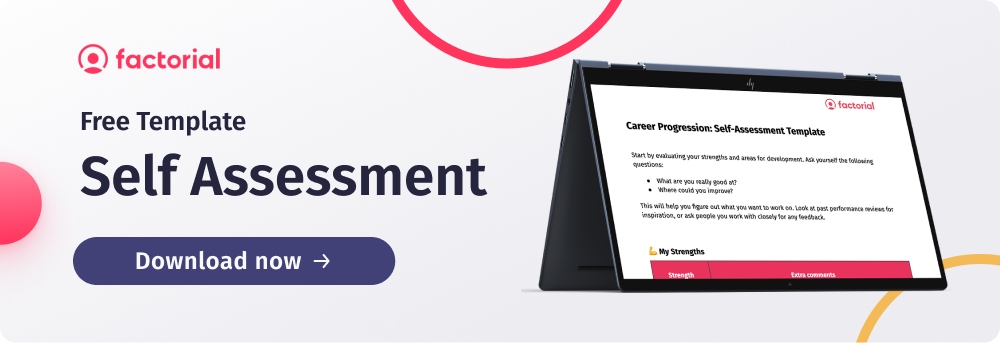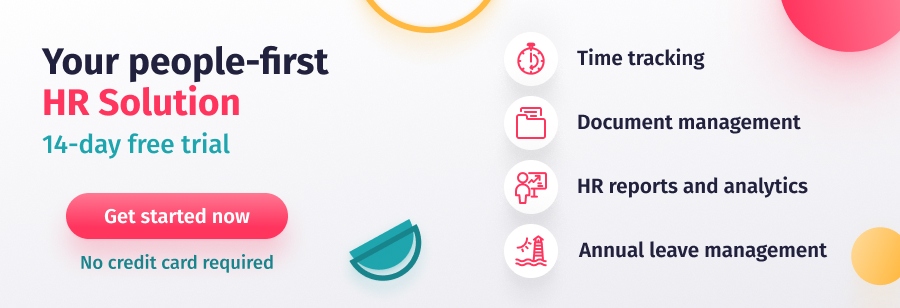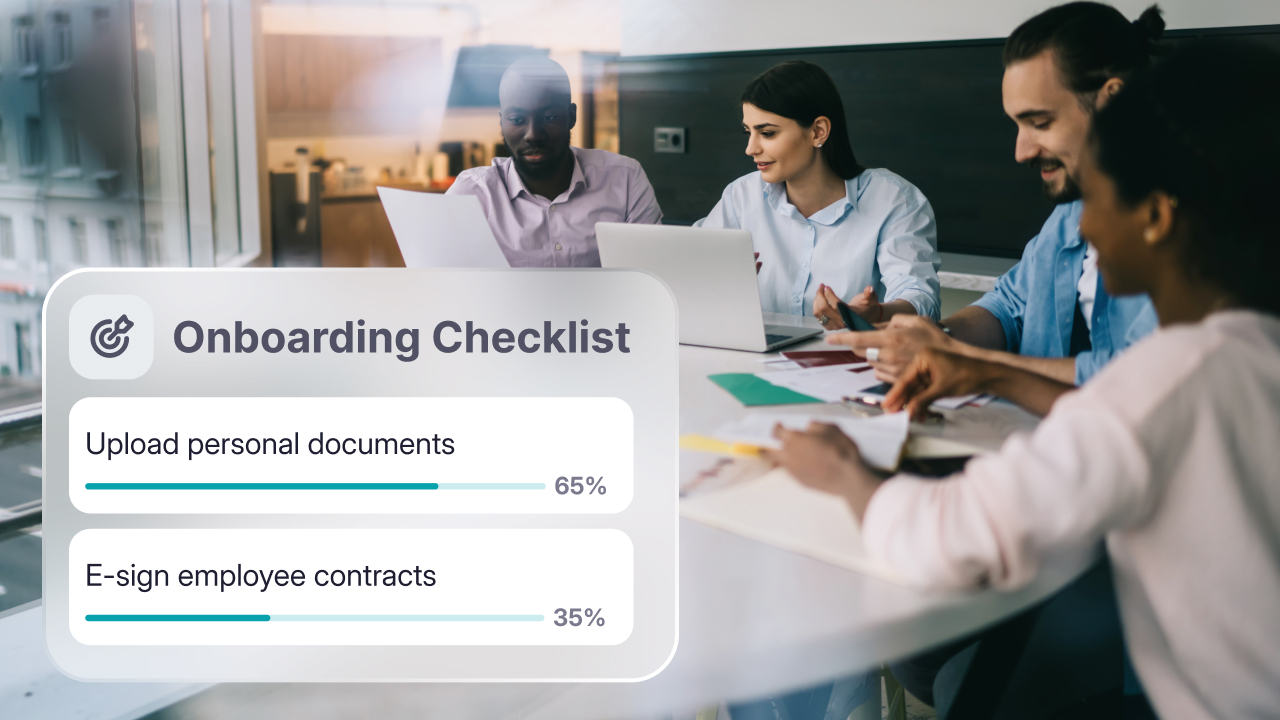Personality is an important factor to consider when hiring new team members. It’s also key to developing a solid workforce in the long run. It defines how people communicate within a team and affects the way colleagues work with each other. That’s why personality tests are widely used in both recruitment and performance assessments.
Data collected from personality tests can help employers predict job performance and build cohesive teams. In this guide, we explore how these tests can help you better understand your team and some of the best free, online tests you can implement in your workplace.
- Types of Personality Tests for Employment
- Benefits of Personality Tests in the Workplace
- Top 10 Personality Tests for Work
Types of Personality Tests for Employment
Personality tests are a useful tool for employers to assess the personality traits, characteristics, skills and values of job candidates. They come in a variety of shapes and sizes, but the most common types of personality tests include:
Trait-based
The Big Five Personality Traits Test and the Myers-Briggs Type Indicator (MBTI) are examples of evaluations that gauge an individual’s innate personality traits and characteristics. This information can be used to match employees with roles and tasks that align with their personality type.
Behavioural
The Holland Code and the DISC Personality Test are examples of evaluations that provide insight into how a candidate may perform in a specific role or within a particular team dynamic. They can aid in identifying potential leaders, team players, and problem-solvers, and can also assist in building productive, high-performing teams.
Skills-based assessments
Cognitive ability tests are examples of evaluations that measure employees’ abilities and skills. They can be used to pinpoint the candidate with the most potential to excel in a role.
Values Assessments
The Workplace Values Assessment is an example of an evaluation that gives a deeper understanding of core values and beliefs and how they align with the company’s culture. This information is vital for managers and company leaders to recruit talent, build teams and plan career paths.

Benefits of Personality Tests in the Workplace
When used appropriately, personality testing can improve the diversity of our hiring decisions and correlate with job, satisfaction and retention. That’s why almost 80 million people complete a personality test each year.
However, it’s essential to keep in mind that personality tests are not the sole determinant of an individual’s suitability for a job or their potential for success in an organisation. They should be one of many tools in the selection and development process, in conjunction with in-depth data about the employee, such as their qualifications, experience and references.
That being said, here are some of the positives that can come from using them in a professional environment.
1. Improve the Recruitment Process
Research shows that over 75% of large companies use assessment tools such as personality tests to screen applicants.
Why? Because assessing behaviour, skills and values provides valuable insights into how aspirants will perform. It can also cut company costs related to recruiting and training new staff.
When looking to expand your team, personality tests are an effective way to discover the aptitudes of candidates. They can play a significant role in the recruitment process, helping to ensure you’re hiring the right people.
The information collected from the tests can be used to match candidates with roles aligned with their strengths and capabilities. Perhaps a candidate doesn’t fit the profile you are looking for but they meet the requirements of another open role at your company.
2. Enhance Team Building
The more you learn about a team, the better you can plan workload and processes to individual strengths and weaknesses.
Conducting regular evaluations is integral to this. Learn how each person works best, what they enjoy doing, how they tend to behave in certain situations (e.g. under pressure, in front of an audience) and what their soft skills are. Build your findings into your strategy, thinking about which personalities work most effectively together and which tasks each person is most suited to.
3. Increase Retention
Turnover is a serious concern for most employers. Companies are relying increasingly on personality tests to avoid the financial cost of replacing talent.
Implementing personality assessments in your hiring and retention processes is key to understanding the motivation of your employees and therefore how to keep them.
Use these assessments to verify that the candidates you’re hiring share common values with your company and mission. This alignment will ensure the people you’re bringing on board are there for the long run.
Best Free Personality Tests for Work
Before you do the tedious work of filtering through the countless personality tests out there, we’ve curated the most commonly used and backed by research:
1. Myers-Briggs Type Indicator (MBTI)
The MBTI is a self-assessment test that measures how individuals prefer to perceive and process information as well as how they make decisions.
It consists of 93 forced-choice questions and measures four dichotomies: extraversion vs. introversion, sensing vs. intuition, thinking vs. feeling, and judging vs. perceiving.
Each dichotomy results in one of two preferences, and the combination of the four preferences results in one of 16 personality types. Each is represented by a combination of four letters (e.g. ISTJ, ENFP).
You can use this test to match roles with personality types. For example, an individual with a preference for introversion, intuition, thinking and judging (INTJ) may be well-suited for a leadership role in a strategic planning department. While an individual with a preference for extraversion, sensing, feeling and perceiving (ESFP) may be well-suited for a sales role.
2. Big Five Personality Traits
This one measures an individual’s level of extraversion, agreeableness, conscientiousness, neuroticism and openness to experience. These five traits are considered to be the most basic aspects of personality and are thought to be stable over time.
The test typically involves answering a series of questions that assess an employee’s level of agreement with various statements related to these five traits.
It can help to assess who is the perfect fit for a job position from a different viewpoint. For example, individuals who score high in extraversion and agreeableness are likely to be strong team players and skilled communicators, making them a good fit for positions in customer service. Similarly, individuals who score high in conscientiousness and low in neuroticism are likely to be highly organised and reliable, making them a good fit for project management or administration.
3. The Holland Code
It is a career assessment test that measures an individual’s interests and how they align with six different personality types: realistic, investigative, artistic, social, enterprising and conventional.
The test is based on the Holland Occupational Themes theory, which suggests that people’s interests and personalities are related to the types of work environments and tasks they find most satisfying.
It is an ally for managers looking to create career paths based on each individuals’ interests and strengths. It can also help to structure teams around communication styles. For example, an individual who scores high in the realistic category may be well-suited for a hands-on job. On the other hand, an individual who scores high in the social category may be more suited for a job in a customer-facing or team-oriented role.
4. The Enneagram of Personality
The Enneagram of Personality is a test that describes personality based on nine different types. These are: Perfectionist, Helper, Achiever, Individualist, Investigator, Loyalist, Enthusiast, Challenger and Peacemaker. Each type has specific characteristics and strengths, as well as potential blind spots and areas for growth. The latter can be considered when forming employee development plans.
5. DISC
This test measures the level of dominance, influence, steadiness and conscientiousness. It considers how an individual tends to behave in different situations and can be used to predict how people might handle stress and pressure.
Not only this, but it’s great for leadership development, sales training and customer service training. If you’re looking to help teams communicate more effectively with their colleagues and customers, this is a solid choice.

6. The Jung Personality Test
The Jung personality test measures preferences for dealing with and relating to people, processing information, making decisions and organising life.
The test is based on the work of psychiatrist Carl Jung and the Myers-Briggs Type Indicator. It provides your personality formula, the description of your type, a list of occupations and the option to compare your type to another person’s type.
7. The Keirsey Temperament Sorter
The Keirsey Temperament Sorter is a widely used personality assessment tool that provides a detailed understanding of how a team member relates to others.
Developed by David Keirsey, it is based on Carl Jung’s theory of psychological types and classifies individuals into one of four distinct temperaments: Artisans, Guardians, Idealists or Rationals.
You can use this assessment in career counselling, personal development, team building and leadership development.
8. 16 Personality Factor Questionnaire
The 16PF Questionnaire is a self-report personality test consisting of 164 statements about yourself, which measures 16 scientifically backed personality traits.
Recruiters can use it to discover core behaviours in candidates that are key to performance. It’s also powerful tool for conducting performance appraisals and competency development.
9. The Strengths Test
Initially, this test was developed by Gallup to identify an employee’s unique strengths and talents. The test is based on the idea that individuals perform best when they use their natural talents and abilities, rather than trying to develop skills that do not come naturally to them. Now, you can take similar tests for free and find the core skills of each team member.
The test is typically online and consists of a series of questions that assess an individual’s natural talents and abilities. Once the test is complete, participants receive a report that lists their top five strengths, along with an explanation of each strength and suggestions to improve.
10. The Career Anchors Self-Assessment
The Career Anchors Self-Assessment is a test tool developed by Dr Edgar Schein to help individuals identify their core values and motivations in their work and career. It is based on the idea that individuals have a set of “career anchors” that influence their career path.
Once completed, individuals receive a report identifying their dominant career anchor, along with an explanation of what that anchor means and how it might influence their career choices.



